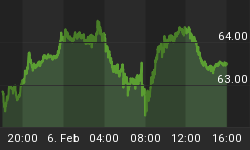Whether the evaporation of popular Bitcoin marketplace Mt. Gox (which may have nothing to do with the Gox in Dr. Seuss's beloved One Fish, Two Fish, Red Fish, Blue Fish[1]) is due to fraud, hacking, incompetence, or some combination of all three - it appears it may have been hacked three years ago, and have been insolvent since then before vanishing from the Internet last night - doesn't really matter. Either way, investors/speculators with money at Mt. Gox got MFGlobaled. The money wasn't segregated (if it was money at all, and if it can be segregated at all), there was no audit (if there can be an audit trail for something that doesn't have a known origin or destination), and the firm was not overseen in any fashion (if it is even possible to oversee something that exists mainly because it is difficult to oversee).
Like Schrödinger's cat, it was kinda there, until someone actually looked and discovered it was dead.
I have carefully eschewed writing about Bitcoin in the past, though people have asked me to do so. I chose not to write about it because I had no wish to be filleted by one side or the other in the argument. But what I would have said would have been a series of simple observations that have nothing to do with how Bitcoin is mined, managed, or mishandled:
- This is hardly the first currency that has been outside of government control. Currencies existed outside of government control before they existed under government fiat.
- Historically speaking, there is a reason that government-sponsored currencies won, and it wasn't because they were backed with gold. It was because people trusted the government when it said the currency was backed with gold.
- Trusted banks were issuers of currency for a long time. The coin of the realm has always been trust - and even if a currency is limited, or backed by limited metal, or whatever, you still need trusted institutions through which the coin flows, or it doesn't work. Where is the trusted institution in Bitcoin's case?
- So what's the big deal?
This isn't schadenfreude. I don't care if Bitcoin succeeds or not; I don't think its success or failure has anything to do with whether fiat currencies succeed or blow up. I don't think Bitcoin is a "safe haven" any more than gold is a safe haven.
But at least I can touch gold. At least I know that gold will have some value in exchange, whereas I don't know that Bitcoin will, tomorrow. And now, indeed it may not. Surely no institutional investor can now invest in Bitcoin deposits without answering the following question to the satisfaction of its board: "How can we be sure that our money won't go the way of Mt. Gox?" And institutional acceptance is a huge hurdle for the future success of this substitute currency. Ditto firms using Bitcoin for transactions - a daylight overdraft that can go to zero overnight is a big risk for a bank.
And so, what I think was always the not-so-subtle problem for Bitcoin or any crypto-currency remains: for it to succeed, a trusted institution needs to be involved. Trust can't be distributed across a network. And if an institution is involved, then the idea of a "people's currency" loses weight. Bitcoin wasn't the first of these attempts, and it won't be the last, but in my mind that is the challenge. You can't make money that only is used by the credulous and the gullible. It must be used by the incredulous and the suspicious. It is adoption by those people which defines the success or failure of a currency.
(Unfortunately, this puts certain elements at my alma mater in the former category. In our January 2014 alumni magazine was an article on Bitcoin. In the information bar "Bitcoin Dos and Don'ts", the first point was "Do your research first! More information is available on Bitcoin.it, a wiki maintained by the bitcoin community. For Americans, the most popular and trustworthy place to buy and sell Bitcoins has historically been mtgox.com." Whoops! Do your research first - popular does not imply trustworthy unless the thing is popular with people whose trust is hard to win!)
[1] "I like to box. How I like to box! So, every day, I box a Gox. In yellow socks I box my Gox. I box in yellow Gox box socks."
You can follow me @inflation_guy!
Enduring Investments is a registered investment adviser that specializes in solving inflation-related problems. Fill out the contact form at http://www.EnduringInvestments.com/contact and we will send you our latest Quarterly Inflation Outlook. And if you make sure to put your physical mailing address in the "comment" section of the contact form, we will also send you a copy of Michael Ashton's book "Maestro, My Ass!"















